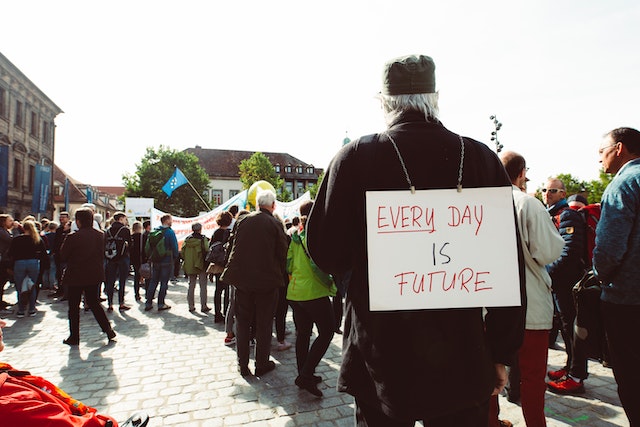Longtermism refers to the idea that protecting future generations' sustainable livelihood is just as crucial as protecting our own present needs.
The future is uncertain to say the least, and although we are dealing with a great variety of issues in our present days, we cannot forget about how what we choose to do today will impact those who come after us.
This is where the term longtermism comes in; it refers to the idea that protecting the sustainable livelihood of future generations is just as important as fighting for our own livelihood today. If past generations made sure we had enough, or even more than what was offered to them, we should strive to do the same towards the future.

Understanding longtermism
This is not a new concept, and it is in fact quite self-explanatory, as it refers to the concern for the long-term future. Why should we stop caring about possible future outcomes just because they are too advanced in time if the consequences are equally as bad (or good)?
But, far from being so simplistic, longtermism is a multidimensional perspective that recognizes the importance of safeguarding and improving society’s long term prospect. From research to policy and business, this perspective and its implications is beginning to take hold of many areas in society.
Basically, our actions could impact and influence the future of our children, grandchildren, and many others further along in time. The possibilities of humanity could be astounding depending on what we choose to do today.
In fact, there are reasons to believe we are living in a time where our actions are particularly relevant to what it is to come. We are experiencing very rapid growth and change, and a unique technological progress and development. These, among other reasons drive us to the conclusion that our choices today could be equally as great as catastrophic for future generations.
But why should we strive to protect future generations?

Why should future generations be a priority?
We believe there are indeed good enough reasons to care for future generations, even those who go beyond the ones we might get to know as our own children or grandchildren: there are moral reasons, there is huge potential, and there is a need to ensure the future’s livelihood.
Future generations matter
There is a moral responsibility to care for and protect future people. It is a moral argument based around the idea that time, as well as space, should not be an obstacle for care. This is, same as we don’t care less for the livelihood of those who live further away in space form us, why should that change when it comes to time?
To put it simply, is the idea that it wouldn’t be fair to think our present lives mattered less for those who came before us, and so our lives should not matter more (nor less) than those that are yet to come.
Safeguarding the potential of humanity
Safeguarding the future of people who come after us equals protecting the potential these people can have, including their impact on humanity’s progress, development and livelihood.
The wider and greater the future could look like, the more reasons we have to protect and safeguard it. However, the survival of this potential is directly dependent on the survival of our planet.

In fact, this might be the perfect perspective to have to solve one of today’s most pressing problems, the effects of climate change. If we want to fight for the future’s potential, we first need to make sure there will be a good enough future to look forward to; a future where resources and life itself can flourish and be sustainable. Which brings us to our next point.
Our actions today will determine the long-term
It is often times hard to believe that our actions today can alter anything of what it is to come. Individual actions seem small and institutional actions tend to take a long time to actually develop, as we have recently seen. But there are many arguments to suggest that our current days can be a great force for good if we make the necessary changes and take the necessary steps.
How we handle climate change today will be a great point of inflection for future generations. And the good news is, we do actually have control over how much damage we are willing to put our planet and society through.
In our actions, for example, developing green technology, reducing carbon emissions and waste, managing or resources responsibly etc., or in the positive influence of our values, on an individual level by teaching or collaborating with those around us, and on an institutional level for example through public policy advocacy.
How can longtermism be present in the workplace?
In DoGood we advocate for the importance of making small but meaningful changes in our everyday life in order to find purpose and a more healthy relationship with what is around us.
We also believe that working collectively can help us find that which alone may seem unattainable or useless. That is why we think the workplace is the perfect environment to find that collective eagerness to make a difference, both for the sustainability and purpose of the company and a more sustainable way of being for all employees.
Through our technology we help companies establish ESG impact objectives for employees in regards to the sustainability strategy of the company.
We are able to activate and track employees’ impact, creating engagement that translates into improved ESG metrics, reputational value and an overall positive impact for the environment and society.








